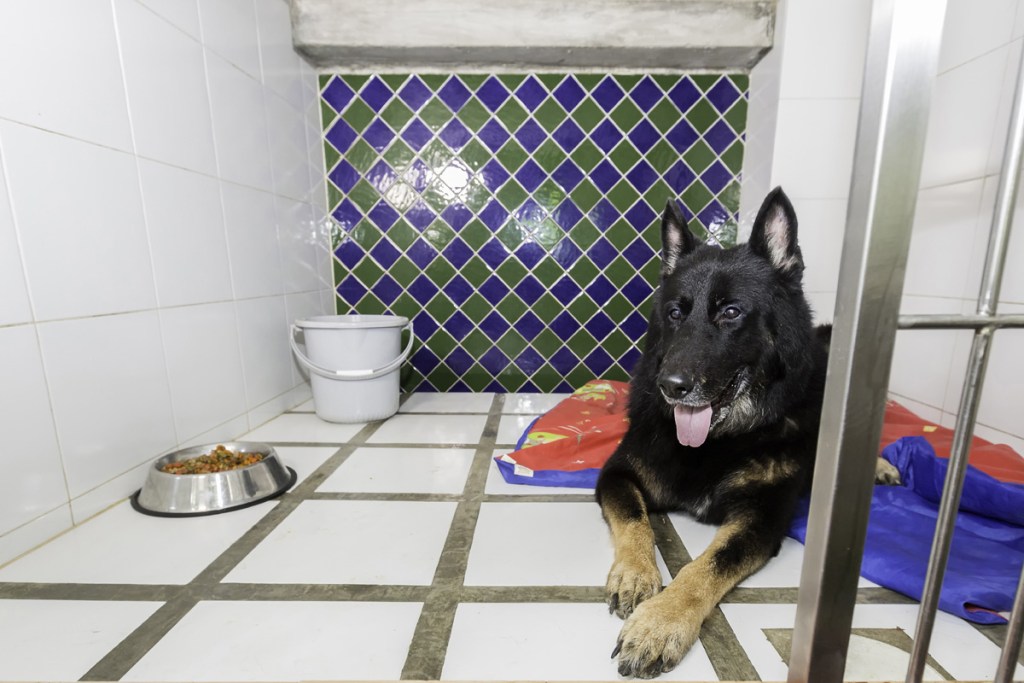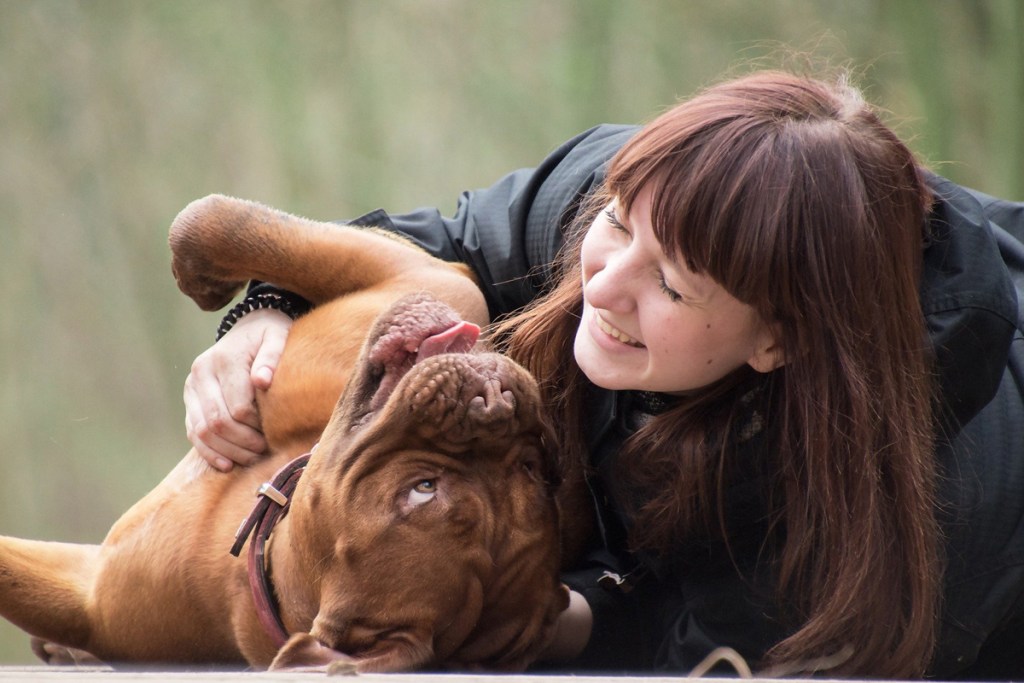While it’s fun to take your dog on vacation, sometimes it’s just not possible. Maybe you’re traveling overseas or visiting with family and dogs aren’t welcome. Whatever the reason, when your best friend has to stay behind, you need to leave her in safe hands. You have two main professional pet care options. You can book your dog into a boarding kennel or hire a pet sitter to come to your home. The better option for you will depend on the temperament, age, and health of your dog. It will also depend on the services offered by the pet care company. Experts at the American Kennel Club suggest getting referrals from your veterinarian, groomer, or dog-owning friends. Once armed with a list, it’s time to start researching.
Boarding kennels aren’t all created equal
Boarding facilities range from traditional kennels with sleeping areas and outdoor runs, to doggie daycare that provides cabins for overnight boarders, to the more luxurious pet hotels or inns where dogs sleep in suites. Some doggie camps offer a cage-free option where boarders cuddle together on beds or blankets. Typically the daycare/boarding and camp facilities employ a team of staff to supervise play sessions and interact with dogs. At many of the pet hotels, dogs are assigned to one attendant throughout their stay. In addition to walks and playdates, dogs may have access to swimming pools and spa treatments.

Pros of boarding your dog
- Many boarding facilities are staffed around the clock.
- Dogs engage with staff and other dogs throughout the day.
- You avoid having a sitter come into your home.
- Some kennels allow owners to check on their dogs via webcams.
Cons of boarding your dog
- Boarding can be expensive.
- Some dogs find the boarding environment stressful.
- There’s a chance of injury during play sessions.
- There’s a risk of illness when around other dogs.
What to consider when choosing a kennel
A reputable boarding facility should meet any state licensing requirements and require that all boarders be current on vaccinations, including the vaccine for kennel cough (Bordetella). While membership in a professional association such as the International Boarding and Pet Services Association isn’t a requirement, it shows a company’s commitment to the profession.
The ASPCA strongly advises a visit and thorough inspection of each potential boarding facility.
5 things to look for when touring a boarding kennel
- Does the kennel look and smell clean?
- Is there sufficient ventilation and light, and is the temperature comfortable?
- Are gates and fences sturdy enough to prevent escape?
- Do sleeping compartments have solid dividers?
- Do dogs have access to raised beds?
Reputable kennels should have some type of boarding agreement that clearly states your rights and the kennel’s responsibilities. Ask about the kennel’s emergency protocol and follow up with references for feedback on their boarding experiences.
Pet sitters offer a variety of services
Typically, a professional pet sitter will visit your home up to five times a day. Some sitters will stay in a client’s home overnight, while others will take pets into their own homes. Professional pet sitters feed, walk, and play with dogs in addition to administering medications. Many also provide additional services such as bringing in the mail and alternating lights to make a house look lived in.
Pros of using a pet sitter
- Many dogs are more comfortable at home.
- Pet sitting is often less expensive than boarding.
- Pet parents can choose a schedule to closely match their dog’s routine.
- There’s less risk of exposure to contagious illnesses or accidents that can happen in a boarding facility.
Cons of hiring a pet sitter
- You will be allowing a sitter access to your home.
- Some dogs might not be happy with a stranger entering their territory.
- Dogs might get lonely between visits.

How to choose a sitter
Experts at Pet Sitters International (PSI) say it’s important to choose an established pet-sitting business that’s insured and bonded. Insurance will cover accidents that may affect your dog or home while in the care of a sitter. Bonding protects against theft by the company’s employees.
Reputable pet sitters have pet care training, especially pet first aid/CPR certification. Many are affiliated with a professional association such as PSI that provides ongoing certifications. In addition to providing signed contracts, many professionals use pet-sitting apps that allow clients to monitor visits and dog walks. Be sure to check company references for feedback from other dog owners. And before making a decision, meet with a few sitters in your home.
What to discuss when meeting with a pet sitter
- Confirm that the company conducts background checks on pet-sitting staff.
- Ask if your dog will be assigned to one sitter and meet with that sitter.
- Be clear about what happens in case of an emergency.
If you’re having a hard time choosing between sitters, look to your dog for guidance. Did she seem especially comfortable with one of the sitters?
Whichever pet care option you choose, consider doing a few trial runs ahead of time. This will give you peace of mind when you leave on vacation. And finally, remember that the most reputable kennels and pet-sitting professionals book up quickly during busy seasons. Be sure to make your reservations well ahead of your vacation to avoid disappointment.



